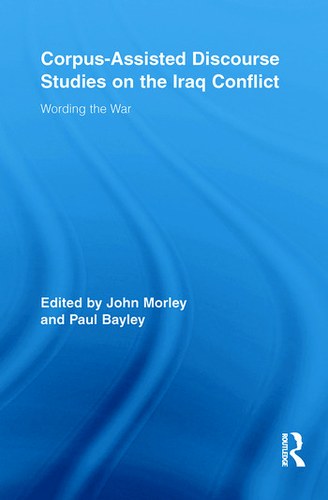CorDis

The CorDis Project included several members of the SiBol (Siena-Bologna) Group. Other members were from the Universities of Bologna and Bologna at Forlì and Rome (Luiss). The project lasted from 2004 to 2009 and was coordinated by John Morley (Siena). Its full official title was Corpora and Discourse: A Quantitative and Qualitative Linguistic Analysis of Political and Media Discourse on the Conflict in Iraq in 2003 and it received funding from the Italian Ministry for Universities.
CorDis was a series of co-ordinated corpus-assisted studies on political and media discourses surrounding the conflict in Iraq. The first purpose of the project was to gain insights into contemporary institutional discourses and the ways in which political action is realised through language. It also had the objective of experimenting methodologies on how these can be investigated using a combination of statistical corpus-analysis techniques and close textual reading.
The CorDis Corpus consists of six related projects. The projects were organised in such a way as to reflect an ideal temporal progression from the discourses of news production in political assemblies, to the recounting of the news in the media to finally, a subsequent Parliamentary inquiry into the reasons why the UK went to war.
• Sources of news creation: (a) British House of Commons, (b) US House of Representatives (Projects 1 and 2).
• News negotiating and mediation between politics and the press: White House press briefings (Project 3).
• Recounting to the public: (a) television news, (b) newspapers, divided into three subcorpora, containing (i) news stories, (ii) editorials and (iii) op-eds (Projects 4 and 5).
• Parliamentary inquiry: Hutton Inquiry (2003-4), which investigated the British Government’s reasons for going to war (Project 6).
The projects findings were published in:
Morley, John and Paul Bayley (eds). 2009. Corpus Assisted Discourse Studies on the Iraq Conflict: Wording the War. London: Routledge.